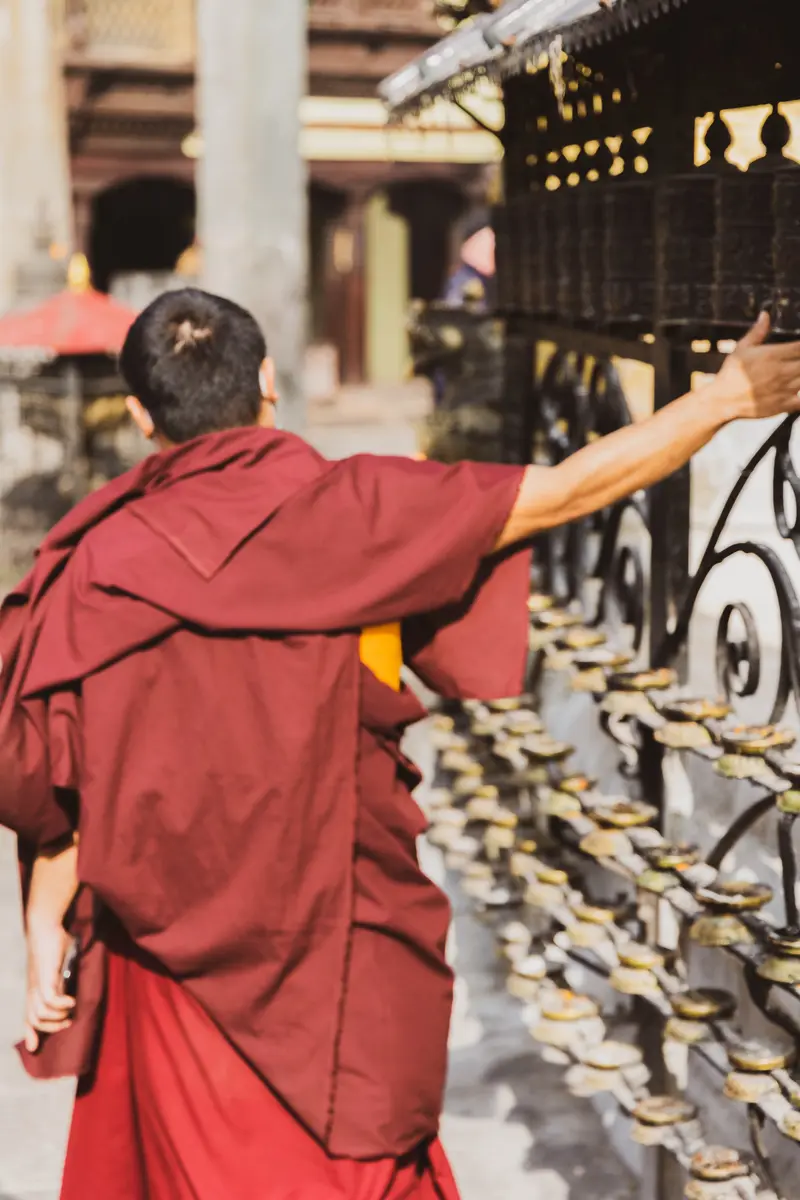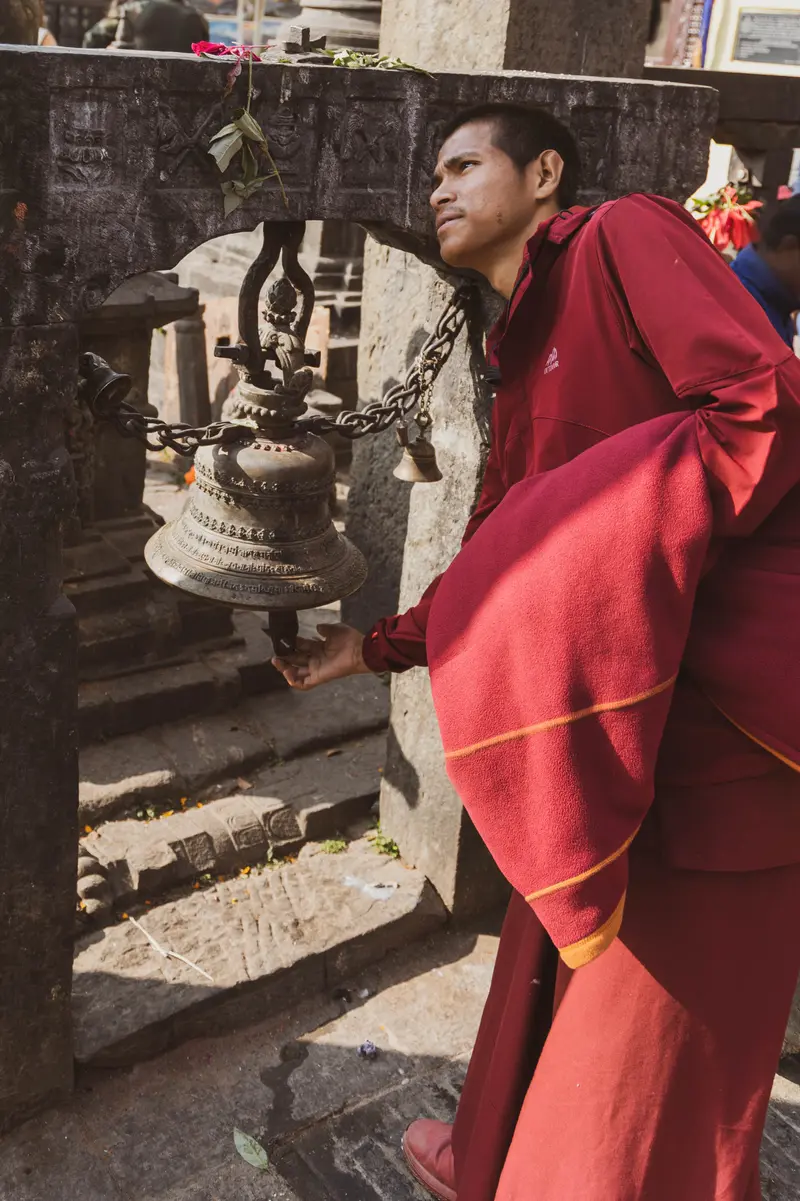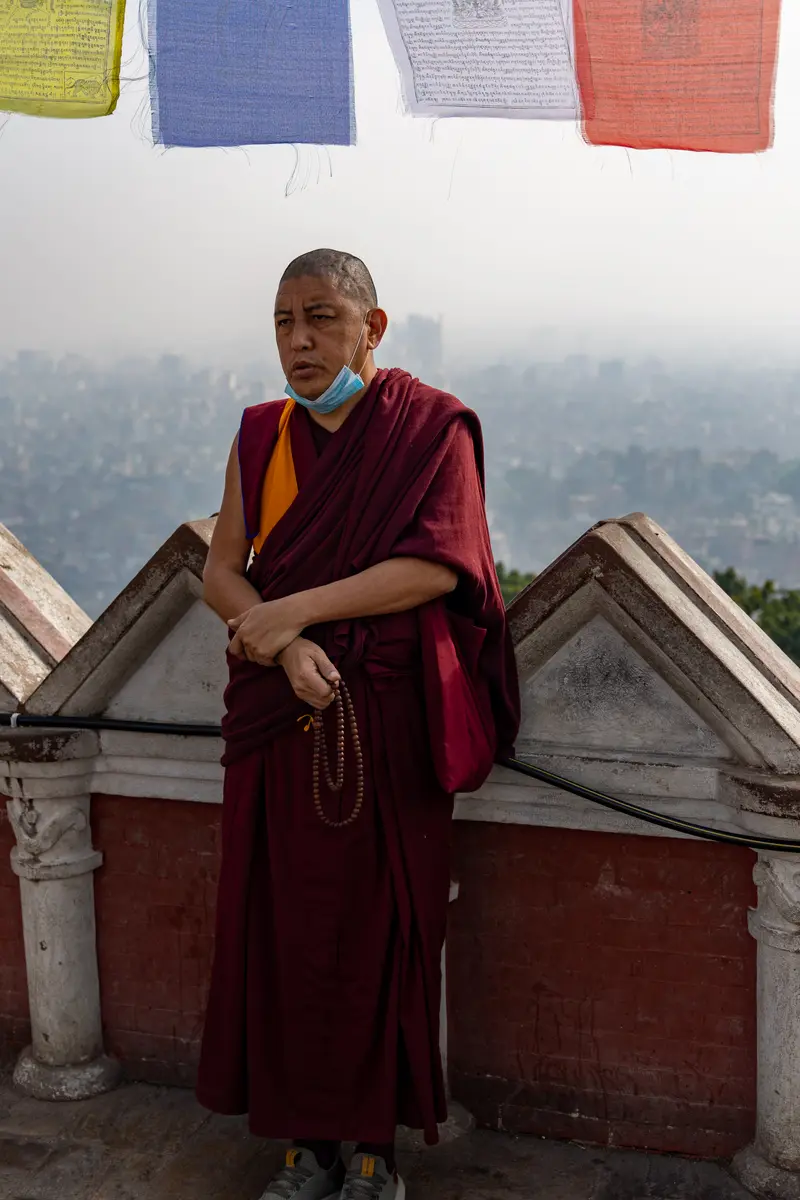Tibetan Prayer Wheels
Everest Region, Nepal
Monk See, Monk Do
Uh oh, this is another one… Don’t hate me, but in Nepal, these Tibetan Prayer Wheels fell into the “Problematic” category for me. Just like the WALL LICKING LLAMAS of Peru, all anyone seemed to be able to tell me was that spinning them as you walked past was a “thing that was happening,” but not why that thing was happening. Eventually I started refusing to the spin the prayer wheels until someone could explain the logic to me. This proved surprisingly difficult, even though we encountered these beautiful wheels constantly.

Granted, part of this was my fault for not properly researching “Tibetan Prayer Wheels” before embarking on a trek with NO CELL PHONE SEVICE in a country with GOVERNMENT LIMITED INTERNET. Another part of it was the LANGUAGE BARRIER, and a huge part of it was just that RELIGIOUS PRACTICES often make no sense and are hard to explain, regardless of which language you are trying to explain them in. Some people I asked readily admitted that they truly had no idea why they were spinning them, and still others described something I would basically come to think of as “good luck.”
Well, they were addictively fun to spin, so I decided that was good enough for me. "Good luck."
An even more irritating mystery were these giant bells. As you can probably imagine, a bell this size makes an enormous amount of noise. They are placed all over Nepal, and people incessantly gong them as they walk past, regardless of their proximity to dwellings and regardless of the time of day. Sleep was scarce for me in Nepal, so the fact that no one could adequately explain to me why they kept constantly banging on these bells was maddening.

I already have a notorious reluctance to blindly follow rules, of any sort, and an even bigger abhorrence to hive mind mentality. As you might have guessed, both IN REHAB and out, Covid was an especially difficult time for me. So many rules were created based on inadequate or faulty information, and then people blindly followed and enforced those rules, based on even less.
It would make me inconceivably angry when I would see people driving around in their cars, alone, wearing their masks. Maybe their heart was in the right place, but I’d see them and immediately know I would likely not get along with that person. Not on a friendship level, anyways. They clearly didn’t ask enough questions to find out the reason why they were being asked to do something, but did it anyway, often while totally missing the point. I just assumed these were people who also jerked off while wearing a condom. You know. Just to be extra safe.

A little slice of home, here’s a monk I watched walk around at a crowded temple for hours with this mask tucked under his chin. Why even bother with it? Wear it or don’t.
I may travel the world because the differences intrigue me, but it’s the similarities that never cease to amaze me. At their core, people are much the same everywhere. We might look different or wear different clothes, but we all have a bell we continue to ring, even though we might not truly understand why.
For me, it’s the southern tradition of holding the door open for women. I’m gay, so they’re no hidden sex agenda, and I continue to do it, even though it is probably rooted in gender inequality and rarely turns out the way it is supposed to. It’s intended to be a gesture of politeness, but in reality, it usually forces people to clumsily and unnecessarily run towards a door that is frequently, accidentally, held open wayyyyyyy too soon. Don’t lie, you’ve been on both sides of that equation. Personally, I can’t stand it when people do this for me, and I can only assume other people feel likewise. But we continue to do it.
If someone from another culture witnessed this awkward interaction and asked me to explain it to them, along with why I continued to participate in the tradition, despite all its obvious problems, I wouldn’t have a proper answer for them. It’s just what we do! You spin the wheel, he rings the bell, I hold the door!
One saving grace is that, unlike all the incessant Nepali bell banging, my mindless tradition is relatively quiet.